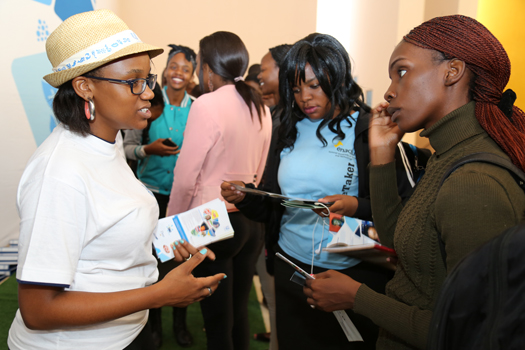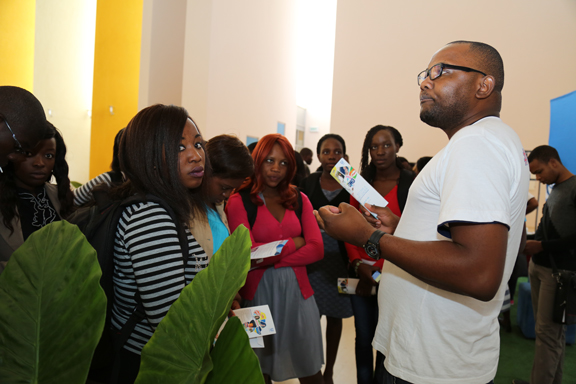THE STUDENT DEVELOPMENT UNIT


About The Student Development Unit
The Student Development Unit is based in the Division of Student Affairs. The unit offers comprehensive student services, providing resources and programs that are designed to help students explore, select and pursue meaningful careers. Our services are available to all undergraduate students, recent graduates, and alumni of the university. All activities aim to develop the psychomotor, affective, cognitive and social domains.
STAFF ESTABLISHMENT
It is headed by a Student Development Officer who reports to the Dean of Students.
FUNCTIONS OF THE STUDENT DEVELOPMENT UNIT
The Student Development Unit operations are guided but not limited to the following:
- Establishing career development programs, such as seminars; workshops and exhibitions, that help in all round development of the students
- Coordinating with the students in order to set up student clubs and societies
- Conducting training for students’ club leaders, faculty representatives, patrons and other representatives
- Supporting student development opportunities and advancements
- Ensuring that the student representative council gets a democratic process
- Coaching and mentoring students on CV and Application letter writing and interviewing skills
- Publishing and supporting the media organizations of student organizations
- Exposing students to the diversity of their socio-economic and political environment to enable them to adapt and deal with the challenges that affect them as individuals and members of society
OVERVIEW OF THE SERVICES
Career development
In order to make informed career choices, the Student Development Officer helps students to explore, articulate and then match interests with career options. Students will be channeled to:
- Attend employer information sessions
- Attend physical and or virtual career presentations, public lectures and workshops on resume writing, interview skills, job search strategies, networking and job fairs
- Undergo mock interviews
- Watch virtual interviews
- Attend special events sponsored by the university
- Participate in career fairs, peer tutoring programs and other relevant community activities
- Attend employer information sessions to explore career options and network with prospective employers
- Participate in recruitment for internship, part-time and full-time employment
CLUB ORIENTATIONS
The Student Development Unit creates awareness and excitement for student clubs and other organizations through the following activities:
- First year students’ orientation week. Clubs and societies recruit new members for their organizations
- Annual color runs. The Student Representative Council facilitates this event. Clubs and Societies exhibit for non-members to join
- Club challenges and events
- Timely promotions
- Social media takeover
- Club branding
- Collaborate with counseling, spiritual and wellness
- Field and service trips
- Bring a friend day
- Timely promotions
- Club of the week
- Club challenges and events
Students find support, make connections, decrease stress, and learn valuable skills through their participation in various organizations. We encourage students to venture out of their comfort zones to benefit from student various clubs and societies. Below are some of the NUST student clubs and societies. All students are welcome to the Student Development Unit.
- Enactus Boost
- NUST Red Cross Society
- The NUST Magazine Club (NMC)
- Society of Women in Engineering (SWIE)
- NUST Environmental Society (NES)
- Forestry, Environment and Wildlife Society (FEWS)
- NUST Investors(NUSTIA)
- Coaches and Mentors
- Youth Mappers (YM)
- NUST Female Investors
- Choice Champions (NCC)
- NUST Got Talent (NGT)
- Toast Masters
- My Brother’s Keeper
- NUST OMEGA LEOs (NOL)
- NUST Debate Society (NUSTDES)
- NUST Charity Movement (NCM)
- NUST Visual Art Movement (NUST VAM)
- NUST Accounting Students Association (NASA)
- Risk and Actuarial Society
- Programmers Byte Space
- NUST Youth Talk
- NUST Student Farmers Club (NUST SFC)
- NUST Human Rights
- NUST First Aid
- NUST Anti-Drug Society (NADAS)
- NUST SRC
- Christian Medical Fellowship (CMFZ)
- Zimbabwe Medical Students Association (NUST ZIMSA)
- NUST Applied Chemistry
- ZUMBA NUST
- Financial Insight Club F.I.C)
- Zimbabwe Institute of Geomatics Youth Network (ZIG)
